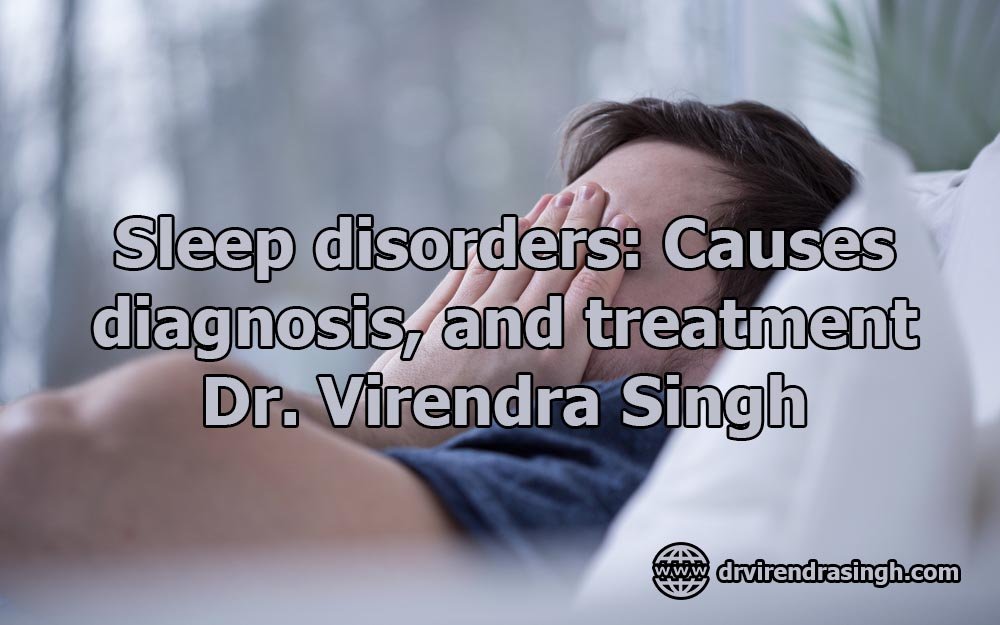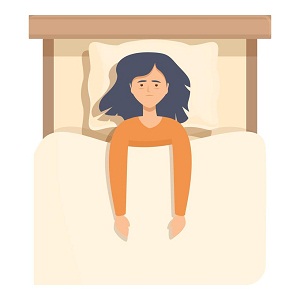
At the end of the day, everyone looks forward to a good night’s sleep. Sleep disorder is a condition that impairs your sleep or prevents you from getting sufficient sleep, which can cause daytime sleepiness. It is common for people to experience sleep problems from time to time. With increasing mental stress, it has become a necessity to calm down our minds and body. Increasing sleep-related problems are a result of stress and a disturbed lifestyle. Sleep disorders is an umbrella term that covers various disrupted sleep patterns, condition, and disorders that takes away a person’s energy and ability to excel in routine lives.
What is Sleep disorders
Dr. Virendra Singh says, sleeping disorders give rise to other diseases in the body as well. Our body repairs itself while in sleep and our mind rests and comes out of the hectic activities of the day. People deprived of sleep experience many problems such as irritability, difficulty in making decisions, reduced performance, slower responses, etc.
Different types of sleeping disorders include the following:
Insomnia:

It refers to one’s lack of ability to fall or remain asleep. It can be due to various reasons and can cause problems like depression, difficulty in concentration, a fatigued body, and mood swings. Insomnia can be acute or chronic depending upon the possible causes, for example, acute can be caused by lifestyle changes or work-related stress and can go away within a few weeks. Chronic, however, can be a result of prolonged stress or depression and go away with time.
Sleep Apnea:
Usually unnoticed but a potentially serious disorder of sleep where a person forgets to breathe during his/her sleep. Sleep apnea disrupted breathing pattern disturbs a person’s sleep.
Restless Leg Syndrome:
It is also a sleep disorder in which a person feels an irresistible urge to move his legs. This urge can be due to prolonged activities such as sitting, driving, etc.
Narcolepsy:
It is a neurological disorder of regulation of sleep which affects sleeping patterns. People suffering might experience episodes of falling asleep during the daytime. These sudden sleep attacks might occur at any time of the day.
Causes:
Many factors contribute to causing sleep disorders; however, the result remains the same. The body’s natural cycle/rhythm is altered leading to the dysfunctioning of multiple organs including the brain. But it is necessary to rule out the possible cause of the problem to obtain precise treatment, it can be as follows:
- Medical issues such as asthma keep you awake at night.
- Physical issues such as ulcers
- Psychiatric problems like anxiety and depression
- Night shifts at work alter sleep patterns and change the body’s natural circadian rhythm
- Lifestyle changes like staying awake till late at night
- Old age.
Diagnosis:
Dr. Virendra singh suggests sleep disorders are suspected at first based on the symptoms of the disease which is followed by a physical exam. In cases of sleep disorders usually, a patient is asked to maintain a sleep diary to record his/her sleep hours and patterns for not less than two weeks. Tests such as polysomnograms can be done to record specific activities while at sleep to identify the disorders.
Treatments:
A mix of treatment procedures is followed to treat different sleeping disorders.
- Counseling:
Experts suggest cognitive behavioral therapy to reduce stress and control anxiety.
- Medication
- Physical exercises
- Minimal light and noise.
Stress, hectic schedules, and other outside influences can cause people to have sleep problems occasionally. If these issues occur regularly and interfere with daily life, they may indicate a sleeping disorder. If you suffer from a sleep disorder for a long period of time, it could cause more harm than you realize. Contact Dr. Virendra Singh for sleep disorder treatment in Jaipur. A good night’s sleep can be achieved if you stick to your treatment plan and stay in touch with your doctor.
